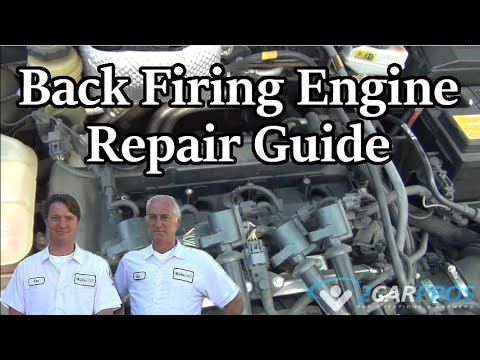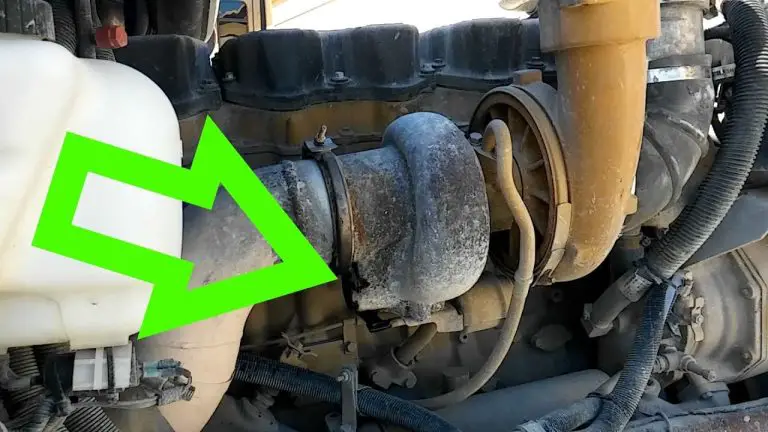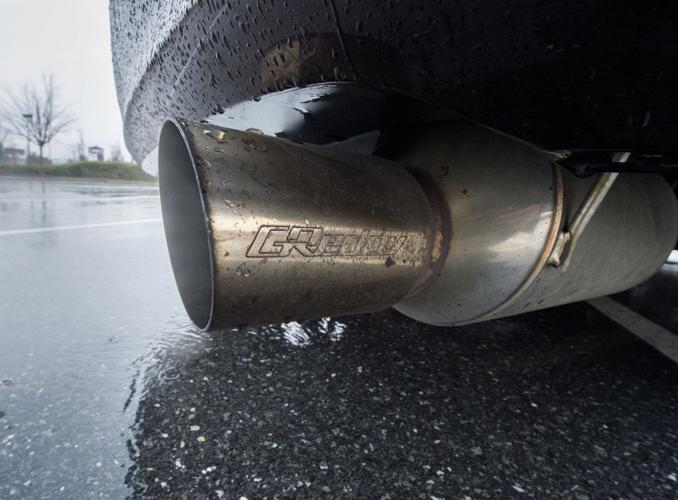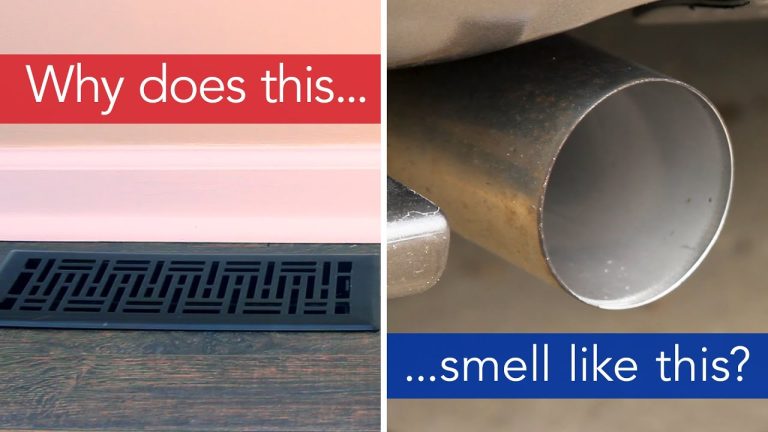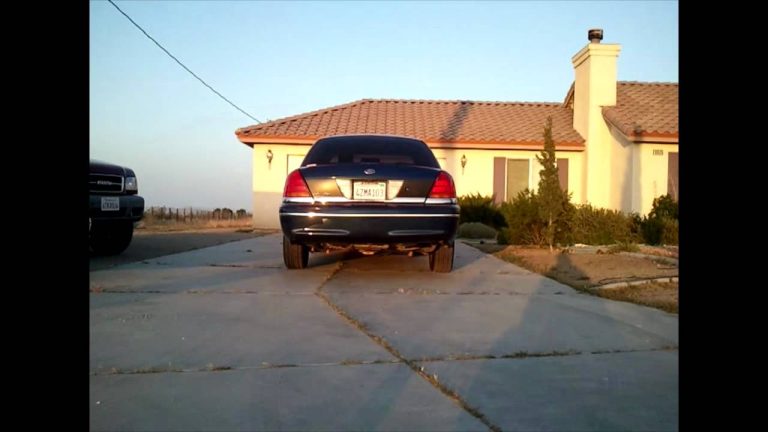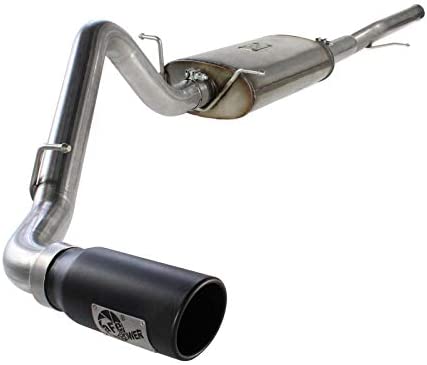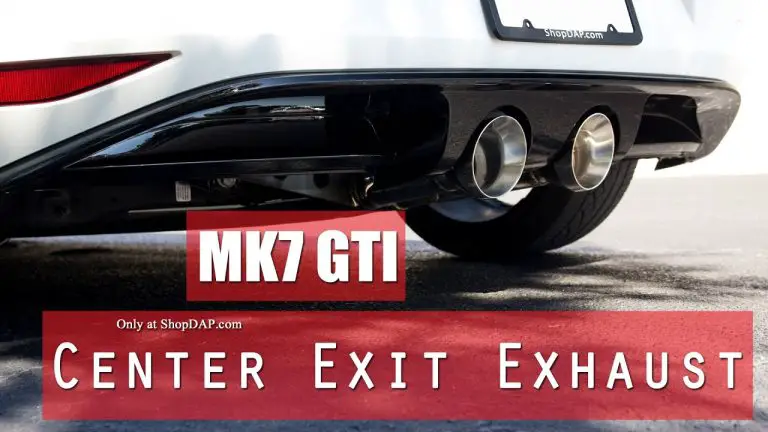Chevy 350 Tbi Backfiring Through Exhaust
If your Chevy 350 Tbi engine is backfiring through the exhaust, it could be due to a few different issues. First, check your spark plugs and wires to make sure they are in good condition and are firing correctly. Next, check your fuel injectors to make sure they are clean and functioning properly.
Finally, check your exhaust system for any leaks or blockages that could be causing the backfire.
If you’re a fan of old-school American muscle cars, then you know all about the Chevy 350 TBI engine. This powerful V8 was used in a variety of Chevrolet vehicles during the 1980s and 1990s, and it’s known for its raw power and performance. Unfortunately, the 350 TBI is also known for its tendency to backfire through the exhaust.
There are a few different reasons why your 350 TBI might be backfiring. First, it could be due to an ignition timing issue. If your timing is off even by a few degrees, it can cause the engine to backfire.
Second, your spark plugs could be fouled or worn out. This can also lead to backfiring. Finally, there could be an issue with the fuel mixture in your engine.
If there’s too much fuel and not enough air, it can cause the engine to misfire and backfire.
If you’re dealing with a backfiring 350 TBI, don’t despair! There are a few things you can do to try and fix the problem.
First, check your ignition timing and make sure it’s set correctly. Next, replace your spark plugs if they’re fouled or worn out. And finally, make sure that your fuel mixture is correct; if it’s too rich (too much fuel), lean it out until the problem goes away.
How to Fix: Engine exhaust popping / Backfires and possible causes for the "pops"
Why Does My Chevy 350 Backfire Through the Exhaust?
A backfire is an explosion that occurs when the air-fuel mixture in the cylinders ignites in the exhaust system instead of at the spark plug. This can happen when the engine is running too lean (too much air and not enough fuel), causing unburned fuel to ignite in the hot exhaust. Backfires can also be caused by a faulty ignition system, carburetor problems, or leaking gaskets.
If your Chevy 350 is backfiring through the exhaust, it’s likely due to one of these issues.
If you’re having trouble pinpointing the problem, take your car to a mechanic for diagnosis. They’ll be able to tell you for sure what’s causing the backfire and how to fix it.
Why Does a Car Backfire Through the Exhaust?
A car backfires through the exhaust when the air-fuel mixture in the cylinders is too rich. This can be caused by a number of things, including a faulty fuel injector, a carburetor that’s not adjusted properly, or an exhaust leak. When the mixture is too rich, it doesn’t burn completely and some of the unburned fuel is drawn into the exhaust system.
When this happens, it can cause the engine to misfire and backfire.
Why Does My Chevy 350 Backfire Through the Carb?
If your Chevy 350 is backfiring through the carb, there are a few possible causes. The most common cause is an ignition timing issue. If the ignition timing is off, it can cause the engine to backfire.
Other potential causes include a faulty carburetor, vacuum leak, or fuel delivery issue.
If you suspect an ignition timing issue, the first thing you should do is check the timing belt. If the timing belt is broken or has jumped a tooth, it will need to be replaced.
Once the timing belt has been replaced or confirmed to be in good condition, you can move on to adjusting the ignition timing.
The process for adjusting ignition timing will vary depending on whether your vehicle has distributorless ignition or a distributor-based system. In general, you’ll need to connect a timing light to the number one spark plug wire and ground wire and then start the engine.
With the engine running, aim the Timing Light at the harmonic balancer pulley and observe the reading on the Timing Light dial. If necessary, rotate the distributor (or IGN 1+ coil if your vehicle has distributorless ignition) until desired idle rpm is achieved according to your service manual specifications with vacuum advance disconnected and plugged (if so equipped). Remember: never rotatethecrankshaftpulley!
Doing so will damage not onlythepulley but alsothetimingbeltorchain ifequippedwithoneoftheseinsteadofaharmonicbalancerpulley!
Once you have adjusted the ignition timing accordingtoyourservice manualspecificationsifyouneedtoreconnectvacuumadvanceandreturntoallnormaloperatingconditionsbeforeresumingdriving!
If your vehicle does not have an adjustable distributor (or IGN 1+ coil if your vehicle has distributorless ignition), then take it to a qualified mechanic who can properly diagnose and fix any underlying issues.
Can a Backfire Damage an Engine?
When a backfire occurs, it is usually the result of unburned fuel in the exhaust igniting. This can happen when the engine is running too lean, meaning there is not enough fuel being mixed with the air. Backfires can also be caused by an issue with the ignition timing.
If the spark plugs are firing too early, this can cause unburned fuel to ignite in the exhaust.
Backfires are not typically harmful to an engine, but they can be if the conditions are right. If there is a lot of unburned fuel in the exhaust and it ignites all at once, it can cause damage to the catalytic converter.
Additionally, if backfires are frequent or occur under load (like when going up a hill), they can cause premature wear on spark plugs and other engine components.

Credit: atipat.org
Chevy 350 Backfiring Through Exhaust
If your Chevy 350 is backfiring through the exhaust, it could be due to a few different reasons. First, check your spark plugs and wires to make sure they are in good condition and functioning properly. If they look worn or damaged, replace them.Next, make sure all of your vacuum hoses are connected and not leaking.
A leaky hose can cause an engine misfire which will result in backfiring. Finally, check your fuel pressure. If it’s too low, it can also cause misfires and backfiring.If you’ve checked all of these things and your Chevy 350 is still backfiring through the exhaust, it’s time to take it to a mechanic for further diagnosis.
Chevy 350 Tbi Sputters When Accelerating
If your Chevy 350 Tbi Sputters When Accelerating, it could be due to a few different things. One possibility is that the fuel mixture is too lean. Another possibility is that the ignition timing is off.
Finally, it could be that the engine is overheating.
If you think that the fuel mixture might be the problem, you can try adjusting the air/fuel screw on the carburetor. If this doesn’t help, then you’ll need to check the ignition timing.
If it’s off, then it will need to be adjusted. Finally, if the engine is overheating, then you’ll need to check for any leaks in the cooling system and make sure that the radiator cap is tight.
Chevy Truck Backfires Through Throttle Body
A Chevy truck backfiring through the throttle body is a common problem with these vehicles. The backfire is caused by the mixture of air and fuel in the engine not being burned completely. This can be caused by a number of factors, including a dirty or clogged throttle body, carburetor, or injectors.
It can also be caused by faulty ignition coils or spark plugs. Whatever the cause, it’s important to get the problem fixed as soon as possible to avoid damage to your engine.
350 Backfires When Accelerating
If your car is backfiring, it could be due to a number of different issues. The most common cause of a backfire is an issue with the ignition timing. If the timing is off, it can cause the engine to misfire and produce a popping sound.
Other possible causes include a lean fuel mixture, clogged fuel injectors, or a faulty oxygen sensor.
If you notice your car backfiring, it’s important to have it checked out by a mechanic as soon as possible. Ignition timing issues can cause serious damage to the engine if left untreated.
350 Chevy Backfire under Load
When your 350 Chevy backfires under load, it’s usually because the timing is too far advanced. This can be caused by a number of things, but the most common cause is a faulty distributor. If the distributor is not advancing the spark properly, it can cause the engine to backfire.
Other causes of backfiring can include lean air/fuel mixture, vacuum leaks, or ignition problems. All of these issues can lead to premature ignition of the air/fuel mixture in the cylinders, which will cause backfiring.
If you’re experiencing backfiring, the first thing you should do is check your timing.
If it’s too far advanced, you’ll need to adjust it accordingly. If that doesn’t fix the problem, then you’ll need to check for other issues like vacuum leaks or ignition problems.
5.7 Vortec Backfire No Start
If you have a 5.7 Vortec engine that is backfiring and won’t start, there are a few things that could be the problem. First, check the spark plugs to see if they are fouled or damaged. If they are, replace them and try starting the engine again.
If the spark plugs look good, then the next step is to check the fuel injectors. Make sure that they are all clean and working properly. If one or more of them is clogged or not working correctly, it could cause the engine to backfire and not start.
Finally, check the ignition system to make sure everything is in good working order. If any of these components are not working correctly, it could prevent the engine from starting or cause it to backfire.
Backfire Through Throttle Body Won’T Start
If your engine is backfiring, it’s likely due to an issue with the throttle body. The throttle body is responsible for regulating the air flow into the engine, and if it’s not working properly, the engine will backfire. There are a few things that can cause the throttle body to fail, such as a dirty air filter or a faulty sensor.
If your engine is backfiring and won’t start, it’s likely that the throttle body is to blame. You’ll need to have it repaired or replaced in order to get your engine running again.
What Causes Backfire Through Exhaust
We all know that backfires can be caused by a number of things, but what exactly causes them? Let’s take a look at the most common causes of backfires through the exhaust.
The most common cause of backfires is an incorrect air to fuel mixture.
If there is too much air in the mixture, it will cause the fuel to ignite prematurely and cause a backfire. This can be caused by a faulty carburetor or intake manifold.
Another common cause of backfires is timing issues.
If the spark plugs are firing at the wrong time, it can cause unburned fuel to ignite in the exhaust system and cause a backfire. This can be caused by incorrect ignition timing or a faulty Distributor cap or rotor.
Backfires can also be caused by restrictions in the exhaust system.
If your exhaust system is clogged or restricted, it can cause unburned fuel to build up in the system and eventually ignite, causing a backfire. This can be caused by anything from an accumulation of soot and debris in the system to a damaged muffler or catalytic converter.
Conclusion
The Chevy 350 Tbi Backfiring Through Exhaust can be a real pain. It’s a common problem that can be caused by a number of things, but the most likely culprit is a faulty ignition module. If you’re experiencing this issue, there are a few things you can try to fix it.
First, check the spark plugs and wires to make sure they’re in good condition. Next, clean the Mass Air Flow sensor. Finally, replace the ignition module if necessary.

